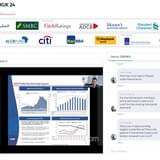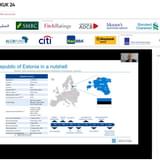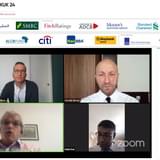Project finance has been a hot topic in the banking sector in Turkey for the past decade, with volumes peaking in 2015 at US$34.5bn. However, since 2016, there has been a continuing decline as low energy and high financing costs take a bite out of demand.
Last year deal volumes tumbled to just US$16bn, while in the first half of 2017, project finance deals amounted to only US$4bn – the lowest in a decade, according to Garanti Bank research. The banker expects around US$15bn worth of projects to require funding from local lenders in 2017, a similar number to 2016 – but miles away from the activity seen in 2015.
This recurring trend is a growing sign that banks have not been immune to the maladies currently affecting the Turkish economy. Investors, both locally and abroad, are increasingly concerned by the country’s political volatility, compounded by increasing security risks and a weakening currency – which has lost almost 20% of its value over the past year. This has significantly increased the cost of funding, especially US dollar funding – the currency of choice for most large infrastructure projects.
These fears have only increased after April’s referendum on constitutional reforms, which President Tayyip Erdogan won by a narrow margin.
Global rating agencies have also repeatedly taken action on Turkey’s credit rating since the July 2016 coup attempt, leading to further deterioration in the country’s operating environment. The Big Three (Moody’s, S&P and Fitch) cut the country’s outlook from stable to negative, both for both the sovereign and the banking sector, which has put additional strain on local lenders’ assets.
This unfavourable panorama has diminished investor appetitive for long-term project finance in Turkey and has prompted banks to lower the amount of capital set aside for projects.
Transportation and Energy Leading the Way
None of these issues, so it seems, have short term solutions.
While the current scenario is certainly not ideal and the funding environment less favourable than it was a few years ago, it does not mean that banks have to stop lending, Mustafa Koçar General Coordinator of Investments and Project Finance at Yapı Merkezi İnşaat ve San. A.Ş explained.
“The rising cost of local funding has put some pressure on projects. However, Turkish banks are still willing to lend and they are still the biggest liquidity pools when it comes to infrastructure projects” Koçar explained.
The sectors dominating the local hunt for funding include energy, infrastructure, and transportation, largely a continuation of what was seen in the market last year. According to Banks Association of Turkey (TBB) 52% of the loans that were provided to fund projects in 2016 were disbursed to the energy sector, while 12% and 13% of were provided for the infrastructure and real estate sectors, respectively. The other 23% went into different sectors.
Other sectors have become less dependent on local funding and have looked to international pools of liquidity in order to finance their endeavours.
“In other sectors, especially in healthcare, there has been significant participation from the international financial institutions including the multilateral development banks,” Koçar said.
The most relevant projects currently underway in Turkey are being executed through public-private partnership models, especially in infrastructure and transport- which figure prominently in the government’s economic agenda.
“The projects in the transportation industry are mostly mega-projects which are of strategic importance to the government, including the Çanakkale bridge”.
Construction and energy will continue to lead the demand for project finance in Turkey, driven in part by the government’s pledge to invest US$100bn into these sectors by 2023. But even though the government has taken the lead in making sure the wheels are greased, the trend being set over the past year will need to be reversed. Macroprudential policies and macroeconomic factors will play leading roles if Turkey wishes to attract investors back into the country’s projects.









